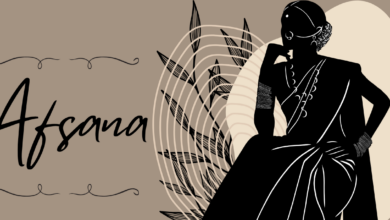Podcast Review: The First Mrs. Claus
 The First Mrs. Claus
The First Mrs. ClausThe First Mrs. Claus is a satirical four-part musical podcast depicting the trial of the first Mrs. Claus for killing Christmas. The series features the voices of Michelle Visage as Hot Coco (the first Mrs. Claus), Kristin Chenoweth as the new Mrs. Claus, Cecil Baldwin as Attorney Sal Vation, RuPaul as Judge Green, and Lewis Black as Santa Claus.
Hot Coco and Ari (a.k.a. Santa Claus) created Christmas in their small town. Coco wanted the holiday to be about being thankful for the people in your life, while Ari wanted to turn a profit. The first episode dips its toes into music; Visage sings that all you should do to make Christmas work is believe. Their fake holiday finds popularity beyond their town, and Ari starts to plan for a bigger market. This leads to global sales of Christmas and its accoutrements, which causes corporations to scrutinize the image of Mr. and Mrs. Claus. It turns out Hot Coco is too tacky and not Christian enough — although she is “the Christian” in the relationship — to be Mrs. Claus. After their marriage is voided, Ari marries the new Mrs. Claus: the picture of hominess.
Chenoweth’s peppy attitude is perfect for the role of the later, more commercially acceptable Mrs. Claus. Baldwin, who’s famous as the narrator of Welcome To Nightvale, brings his own brand of humour to his performance.
At times the show can feel more absurdist, like Nightvale, than satirical. For instance, the podcast’s premise that Christmas can be killed is laughable. On the other hand, the podcast attempts to be satirical by drawing attention to strange customs we take for granted in relation to Christmas, such as buying decorations or real trees every year.
The First Mrs. Claus is grasping at the popularity of podcasts like Serial, which examine true crime. Having Nancy Grace — a well-known television journalist — play herself adds to this journalistic feeling. The series is filled with sexual humour. For instance, the plaintiff is DICK (the Department of Internal Christmas Knowledge). The podcast attempts to take a critical look at the capitalistic aspects of Christmas and tackles the so-called “war on Christmas,” showing how outrageous it is, as Christmas is a statutory holiday, unlike other religious holidays.
However, acknowledging how Christmas is linked to consumerism doesn’t itself solve this problem. The podcast’s solution is to move back towards the “original meaning” of Christmas: having a day to be grateful for all the good things and people in your life. Nevertheless, this is voided because, in the world of the podcast, Christmas was created not only for celebrating with loved ones but to make a profit.
To make the series timely, it includes throwaway remarks about attorney generals, and how attorney-client privilege could get in the way of the case. Although this serves the podcast in the current political climate, it will be dated in a few years.
Overall, The First Mrs. Claus is fun and does not require any engagement from the audience, making it a pleasant morning listen. This podcast does not aim to become a Christmas classic, nor does it fully engage with present-day politics, making it a cute, predictable musical for the holiday season.




